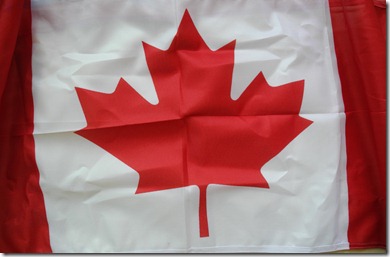As a boy in elementary school, history appealed to my imagination, as it allowed me to visualize the adventures and mysteries of the past. In my mind, I pictured treachery, murder, battles, blind ambition, cruelty, bravery, cowardice, hatred, and romance.
Reflecting upon the history of Canada, I realize that my country has not aggrandized its yesteryears to create an inflated sense of national pride and has not rewritten the stories of the lives of its historical personages, elevating them to the status of mythical heroes. Contrast, contradiction, and compromise are ingrained in our heritage, as well as our weather. Our first prime minister was a drunk and involved in a political scandal that swept him from office. However, his charm, wit, and intelligence forged a nation that eventually stretched from sea to sea. John Graves Simcoe, an imperious British aristocrat, introduced a law to abolish slavery, the first such decree within the British Empire. However, the law did not set free existing slaves in the province of Upper Canada (Ontario).
Canadians are perhaps the only people in the world who believe they won the War of 1812, but in truth, we are likely the only ones who have ever heard of the war until this year, when its bicentennial was celebrated. In 1837, British troops cruelly crushed the rebellion in Lower Canada (Quebec) and then burnt and sacked farms in Upper Canada to punish those suspected of participating in the uprising. However, Ontario remained staunchly British. Contradictions, warts, wrinkles, and blemishes—are all included in our nation’s history.
Through my history teachers at the elementary school level, I became immersed in the life and times of New France. When General James Wolfe scaled the heights at Quebec, I felt proud of my British heritage. However, I sympathized with the French, who had lost a homeland. In achieving victory, Wolfe lost his life, and I felt that Montcalm’s death was a tragedy, too.
In the War of 1812, I learned about the demise of General Brock. His body was dug up and moved several times before it finally came to rest in the great monument on the heights at Queenston. In this conflict, the contributions of Tecumseh, the Indian leader, were enormous. When the native warrior died on the field of battle, his tribesmen secretly buried him. Today, the site of his grave remains unknown.
I read about Lord Durham and his famous report to the British parliament concerning the Canadian colonies. This report reverberates in our political scene today. The Act of Union united Upper and Lower Canada to form The Canadas, the first step toward the conception of the nation. The road to confederation was a winding path, but John A. Macdonald and George-Etienne Cartier finally triumphed. The British North American Act created a new nation on the world stage.
Because of the grade-seven history course, I developed a lifetime love of Canadian history, which continued throughout my high school and university days. Today I realize that the fascination, which began when I was eleven years old, stimulated my interest in my heritage. This was something that otherwise might have never occurred. The impact of a good teacher never ends.
I have arrived at a few conclusions about the land of my birth. Canada has a triple heritage—Native Peoples, French, and English, even though the latter two groups tended to ignore the former. From the country’s inception, its survival depended on compromise. This became an asset in future years, as it became easier to accept nationalities and ethnic groups from around the world. The transition did not occur smoothly or without resistance, but the precedence had been established.
Canada was not conceived in violence. William Lyon Mackenzie attempted this path in 1837, but despite the righteousness of his cause, he was not supported by the majority of the population. Nationhood was finally achieved through patient negotiations and compromise. The concept of violence to achieve one’s goals was not ingrained in our culture. This remains true today.
My parents taught me that the measure of a person’s character was how he/she treated those less fortunate than themselves. This also applies to nations. In this respect, Canada has done well since the Second World War. Social programs survive, and they help define us as a nation. However, I fear that this Canadian characteristic has been being eroded during the past few years. This is indeed a great tragedy.
The values inherited from our past do not make us a superior nation, but they have created a nation like none other. Over the many decades, Canadians have developed a “national personality.” It does not matter that other countries are unaware of it and that most of us are unable to define it. It is a reality.
Happy Canada Day.
The above quote is from my book “Arse over Teakettle,” a tale of a young boy coming-of-age in Toronto during the 1940s. It is a humorous story, as the boy and his friends confront the problems and prejudices of war-time Toronto.
I have spent much of my adult life researching and photographing Toronto. I love the city and enjoy exploring it through my writing. One of the books, “The Villages Within”, was nominated for the Toronto Heritage Awards. If interested in novels with a Toronto setting, descriptions of the books are available by following the link: https://tayloronhistory.com/2012/03/22/toronto-author-publishes-seventh-novel/
They can be purchased in soft cover or electronic editions. All books are available at Chapters/Indigo and on Amazon.com. The electronic editions are less that $4 on Kobo and Kindle. Follow the links:
There Never Was a Better Time: http://bookstore.iuniverse.com/Products/SKU-000056586/THERE-NEVER-WAS-A-BETTER-TIME.aspx
Arse Over Teakettle: http://bookstore.iuniverse.com/Products/SKU-000132634/Arse-Over-Teakettle.aspx
The Reluctant Virgin; http://bookstore.iuniverse.com/Products/SKU-000188306/The-Reluctant-Virgin.aspx
The Villages Within: http://bookstore.iuniverse.com/Products/SKU-000175211/The-Villages-Within.aspx
Author’s Home Page: https://tayloronhistory.com/
Authors can be contacted at: [email protected]
